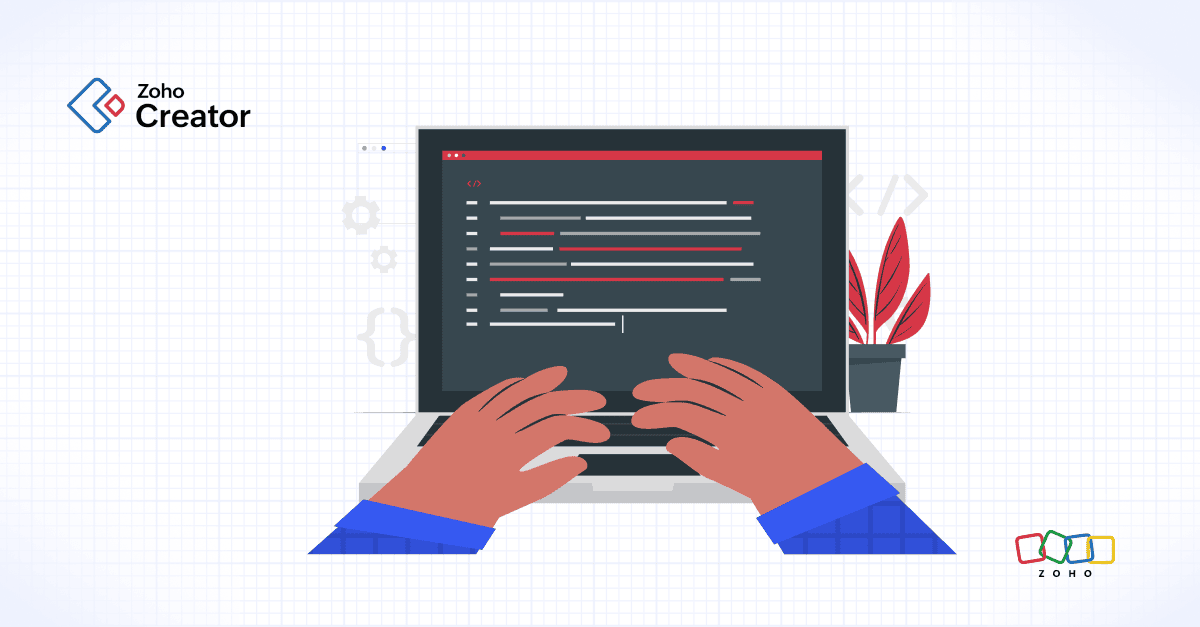- HOME
- Know Your Tech
- Reshaping the manufacturing industry with low-code platforms
Reshaping the manufacturing industry with low-code platforms
- Last Updated : February 3, 2026
- 1.3K Views
- 8 Min Read

COVID-19 halted business activities around the world and had significant ramifications on various industries. The pandemic shook the manufacturing industry to its core, forcing organizations all over the world to think on their feet and swiftly improve their business strategies in order to assure continued market viability and employee safety. Production, demand, and supply chains—essential elements that underpin normal manufacturing cycles and processes—have all been impacted. Specifically, supply chain disruptions caused a slew of issues, ranging from delivery delays to higher costs.
COVID-19 worked as a catalyst of digital acceleration for many manufacturers who were unsure about their next steps. Digital transformation has now become a necessity, and it has drastically revolutionized the field service industry as well. Although the pandemic wreaked havoc on many enterprises, there was one silver lining: it spurred digital adoption and entrepreneurship for businesses of all sizes. As enterprises adjust to the new normal, it's critical to acknowledge this advancement, which leads to the most important question: How is the industry reimagining manufacturing operations?
The manufacturing industry in the pre-COVID era
Digital manufacturing—i.e., Industry 4.0—includes modern technologies such as artificial intelligence, advanced robotics, and the Internet of Things (IoT). Manufacturers were often hesitant to adopt digital manufacturing before the pandemic, highlighting a digital skills gap across the industry and emphasizing the need to upskill existing workforces. Below are some of the issues that manufacturers had to deal with before embracing digital manufacturing.
Digital connectivity: Businesses without digital access experienced further interruptions in the manufacturing process, from operations to inventory.
Technology: Without automation, there was a lot of manual and redundant work, as well as the possibility of human errors or injuries, a low production rate, and so on.
Communication: Employees from different departments weren't able to communicate efficiently and access information on the go.
Operations management: Inadequate operations management results in increased operational costs, lack of real-time data, decreased efficiency and output, quality and compliance difficulties, and more.
Adapting via digital technologies
Embracing digital manufacturing enables companies to meet performance goals and boosts communication, actionable insights, real-time data, and more. Companies that fail to adapt to changing business conditions via advancements in digital technology risk becoming obsolete. To stay ahead of their competitors, manufacturers must employ digital and smart technologies that help them increase efficiency and productivity.
Tech Table Talks, our virtual roundtable series, recently addressed the topic of redefining the manufacturing industry with low-code platforms. Mehmet Ozkan (Proprietor, Ozelia), Amanda Tighe (Project Manager, Saint Gobain), Rauf Jamal (Solution Expert, Zoho), and Swetha Lakshmi (Zoho Creator, Product Marketer) were the industry experts who participated in our round table discussion. Continue reading to learn more from our experts about digital adoption in the manufacturing industry and how low-code platforms can help.
The Digital Revolution and custom solutions
The manufacturing business is going to turn out to be substantially more digitized as a result of the pandemic, further feeding the growth of Industry 4.0. But what is Industry 4.0? It's the digital transformation of manufacturing, production, and related functions and their processes. The digitization of the manufacturing industry has changed the production lifecycle significantly. This transition is so compelling that it's called "Industry 4.0" to represent the fourth revolution taking place in the manufacturing industry.
How important is digital transformation or low-code for the manufacturing industry?
Rauf: Industry 4.0 is actually a vision that evolved from an initiative to make the German manufacturing industry more competitive—that's where the term was globally adopted. It's the name of the trend for the latest technologies, and that's an essential thing that we have to understand as stakeholders of a manufacturing company. I need my company to adopt these latest technologies, not just because they look fancy, but because it really helps; it reduces a lot of labor and keeps employees happy. I also want to cut costs and get a better return on my investment. With all these things considered as a whole package, I want to do this digital transformation.
When a business owner comes in looking for a low-code platform, they first must understand what exactly they need, in terms of application requirement and their business objective. One of those requirements is flexibility with the latest technologies in the market, as well as scalability. And it needs to be cost-effective.
How has the pandemic affected the industry?
Rauf: In the real world, we had a lot of people focused only on the IT department or the development segment coming to us and looking for software or a platform that could solve their business needs. That was the trend during pre-COVID times. But now, impressively enough, there are a lot of people approaching local platforms now, and these are not IT people or developers. These are business holders, business unit heads, and stakeholders taking interest. And they have ample time actually to concentrate on the things that are giving them a lot of problems. We're now getting a lot of business people who are taking the lead and getting in touch with us.
The search for a custom solution
Amanda: The first time I actually went looking for a custom solution, I did it because even though we're part of a larger organization, we're a small business and we have certain limitations. As a result, we are unable to change our accounting or ERP systems; we have to stay within the group solution.
So what we really needed was a logistics software that would actually organize our product, get it out to our customers, and get feedback on how the product got to the customer, whether it was in good condition or not—to help our customer service and, obviously, to improve the customer experience. In fact, what we found was that there was actually nothing on the market that met our criteria. And it was expensive for us to get a custom solution made.
That prompted me to start looking at different solutions. I had actually used Zoho in a previous life, and I had seen that it actually really updated itself with a lot of new and exciting features. So I started exploring it. And from there, we created the very first solution. What it does is actually create our proof of delivery. It organizes our hauliers and gets our products to customers. So that was the very first application we created on Zoho Creator.
Relevance of low-code
Low-code is a software development approach that streamlines the entire development process and speeds delivery. Low-code development platforms use a visual interface with simple logic, drag-and-drop functionality, and guided scripts instead of a complex programming language.
Why low-code?
Low-code development can be used to develop anything from IT processes to business software. It can be used by anyone as it requires little to no coding knowledge. With the right low-code tool, just about any IT team member can develop reliable cross-platform business processes and accelerate application delivery.
How Ozelia built an end-to-end ERP system using Zoho Creator
Mehmet: I started with a single form to collect data. We're working with 300 or 400 farmers in the region. They bring their batch on a daily basis. And then we process them on a first-come, first-serve basis. So I started with that form, and it went very well because we were able to collect all kinds of information about the incoming batches, and we were able to see the queue length, waiting list, and what goods were actually coming, and in what order we needed to process them, etc. Then I implemented the manufacturing process and the delivery. At the end of the three or four months, I was able to develop everything, including HR, payroll, expense tracking, even waste management, and we were actually able to monitor all of the transactions, accounts receivable, collections, and delivery processes. It was unthinkable to be able to develop something like this without help from an outside party.
Manufacturing industry and low-code
As manufacturers adapt to the need for real-time data and rapid innovation, low-code provides the desired balance of speed, security, and faster development and deployment. Rapid application development is key to driving this connection across the enterprise, from the factory floor to the customer's site. Manufacturers make extensive use of rapid application development platforms to develop and deploy applications at a speed that can be scaled to meet the needs of the enterprise. Low-code platforms are widely popular among manufacturers because they provide process modernization, digital solution customization, flexibility and scalability for scalable implementation, and time-saving and effective digital transformation.
Low-code development offers potential opportunities to accelerate a company's journey to Industry 4.0. According to a recent survey, 80% of manufacturers believe that intelligent manufacturing is important for future success. Smart manufacturing involves the use of interconnected networks of devices, machines, and processes. Another important aspect is the close link between low-code and the IoT. To get the most out of IoT solutions in the industrial sector, companies need development platforms that can help manufacturing businesses quickly and efficiently build custom applications for their unique IoT use cases.
How low-code applications increase adaptivity
Amanda: We created a Health and Safety application on Zoho Creator that uses a mobile device. We also have a public link that we have scattered throughout the business, which anybody can click on anonymously to raise a request if there's an issue anywhere, or upload photos or videos. This has already been running for the past two years. With COVID-19, we were actually able to add very quickly—within an hour—the new guidelines because I was just able to copy and paste them into the format that we already had. I was able to add the new sections.
As a result, anyone who identified social distancing failure could actually notify management straight away that there was an issue. If there was anybody coming too close, or if there weren't enough sanitizers, these things would get sent immediately to development people through mobile devices. We also did a track and trace of who's on site. When they arrive, they use their own mobile device to sign in to their on-site account. And when they leave, they say that they've left, which means that at any time, we know the number of people that we have for a given location, which has really helped us open our business back up.
Choosing Zoho Creator
Check out this full version of the webinar where our panelists discuss why customers are choosing Zoho Creator—a low-code platform—over traditional development methods, the benefits of choosing a custom solution, the specific features of Zoho Creator that have benefited a lot of businesses, and more.
The future and beyond
Industry leaders around the world widely accept Industry 4.0 and look forward to advances in AI and robotics over the next few years. Both adopting digital technology and improving processes in the current industry environment are essential to staying competitive. These improvements enable manufacturers to identify and respond to disruptions, and to translate them into competitive advantages.
What does the future of the manufacturing industry look like?
The pandemic has strengthened the message that digital solutions will have the greatest impact as they reach beyond corporate barriers and cover most of the value chain. Organizations need the right people and the right processes to support their Industry 4.0 ambitions. In a nutshell, automation, a skilled workforce, and a resilient supply chain are paramount to the future of manufacturing in a post-pandemic world.
Zoho Creator allows you to build your own manufacturing ERP software from the ground up to solve many of the challenges we've talked about in this article. Custom ERP solutions allow manufacturers to add, remove, and modify modules as needed without modifying existing structures.
So, what are you waiting for? It's time to digitize. Start your 15-day free trial today!
 Aishwarya
AishwaryaAishwarya is a content marketer at Zoho. Apart from creating content, she loves to read and watch sci-fi and crime thrillers, travel, and basically can't survive without coffee.



